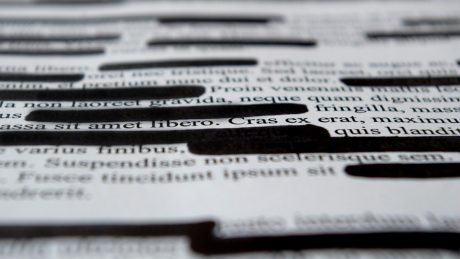The recent case of Astra Asset Management UK Limited and Musst Investments LLP [2020] EWHC 1871 (Ch) (22 April 2020) provides some general guidance on the provisions relating to redactions under the Disclosure Pilot Scheme (DPS) that came into effect as Practice Direction 51U (PD51U) on 1 January 2019. Senior Associate Joseph Rossello looks at this decision.
The DPS requires parties to proceedings to take a different approach to disclosure than was previously the case under Civil Procedure Rules Part 31 (CPR 31). Indeed, as the court noted in UTB LLC v Sheffield United Ltd & Ors [2019] EWHC 914 (Ch) (9 April 2019) “the DPS is not simply a rewrite of CPR 31”.
Under the CPR31, there was no express provision relating to redactions. With the commencement of PD51U, there is now a specific provision in paragraph 16.
In the Astra Asset Management case, the court considered the approach regarding redactions under PD51U, in particular:
- identification of the basis for making redactions; and
- the court’s power to make orders regarding challenges to redaction under paragraphs 17 and 18 of Practice Direction 51U.
It also looks at the circumstances in which a disclosure certificate under paragraph 12.1 of PD51U should be amended.
Redactions
While there was no express provision in the Civil Procedure Rules regarding the ability to redact disclosed documents, it had been a common practice to cover over parts of documents which were either irrelevant or privileged.
Indeed, CPR 31.19(3) enabled a party to withhold inspection of a part of a document and to require a party to set out the basis on which it exercised a right to withhold that part of the document. It is clear that even in the absence of an express provision, the CPR contemplated redactions.
With the introduction of Paragraph 16 of PD51U, there is now a specific provision permitting a party to redact a part or parts of a document on the grounds that the redacted data comprises data that is:
- irrelevant to any issue in the proceedings, and confidential; or
- privileged.
It also requires a party to explain the basis of each redaction made and, where a party is legally represented, to confirm that the redaction has been reviewed by a legal representative with control of the disclosure process (paragraph 16(2) of PD51U).
Identifying the basis for redactions
Paragraph 12 of PD51U states that an order for Extended Disclosure is complied with, among other things, by serving a Disclosure Certificate substantially in the form set out in Appendix 4 of PD51U.
An explanation for the basis of the redactions made to the documents disclosed, as required under paragraph 16.2 of PD51U, is set out in the Disclosure Certificate.
While not making any specific judgment on these points, the judge in Astra Asset Management noted that where there are a number of documents and a number of redactions, it is not realistic to expect that each individual redaction should be given a separate explanation, especially where it would merely be repetitive or would risk identifying the data that is claimed to be irrelevant and confidential.
On the other hand, using a highly generalised formula is also not appropriate unless it provides an accurate and complete explanation of why data has been redacted.
It is clear that there needs to be some sort of balance struck between these positions in order to comply with the requirements of paragraph 16.2 of PD51U. Further, providing some detail may assist in avoiding general challenges to any redactions made.
Challenging redactions: paragraph 17 or 18 of PD51U?
While a party is entitled to challenge a redaction made, the judge stated that it could only be made where there is a clear basis for seeking to undermine the judgment that has been applied by the redacting party.
In order to consider whether the party is entitled to redact the document, it may be essential for a full review of all of the documents challenged be made. However, the judge noted the impracticalities of requiring the court to review large amounts of unredacted material and expressed the view that the court may lack the necessary understanding or context in order to determine whether the basis for the redaction is made out.
The issue then arose as to what power the court had to consider whether the redactions were appropriate. The applicant in this matter suggested that the court had the power to review the original unredacted documents under either paragraph 17 of PD51U or paragraph 18.
The judge noted that the provisions of paragraph 17 concern a failure of a party to comply with the court’s order for extended disclosure adequately. Paragraph 18 gives the court power to vary an order for extended disclosure or make an additional order for the disclosure of specific documents.
The judge held that when making an order under paragraph 17, the court need only consider that it “is reasonable and proportionate” to do so. There is an additional hurdle to overcome when considering paragraph 18. Here, the court must be satisfied that in addition to the above, the order “is necessary for the just disposal of the proceedings”.
If the court is to be persuaded to revisit an order for disclosure that has already been made, the judge determined that there should be a good reason for that to be done. He pointed out that the court makes orders for disclosure on the best available information at the time the order is made and it should not be commonplace that the parties can invite the court to return to those issues. However, there are cases where that may be necessary.
During the hearing, the judge reviewed a series of emails that had been redacted. The basis for redaction had been explained in the Disclosure Certificate. A solicitor had undertaken the redactions, and it was clear from the Disclosure Certificate that the redactions were made for reasons of both confidentiality and irrelevance.
In the judge’s view, the redactions were limited. He also felt that in the context of the redactions made there was nothing to indicate that information that should have been disclosed had not been.
As an alternative, the applicant invited the court to review the original unredacted documents to determine whether the redactions were appropriate. The judge held that if he had held significant doubts about the propriety of redactions, then this might have been an option, even though such a request was not included in the application. The judge went on to say that it would be very unlikely for the court to be able to form a view with any safety on either relevance or confidentiality should such an approach be adopted.
The position in this case should be contrasted with that in WH Holding Limited, West Ham United Football Club Limited v E20 Stadium LLP [2018] EWHC 2578 (Ch) (5 October 2018), a case which was considered under CPR 31. In that matter, Mr Justice Snowdon used his powers under CPR 31.19(5) to review the original versions of a sample of selected disclosed documents to determine whether the redactions were appropriately made.
While the judge in that case formed a view that the redactions made had been appropriate, one can see it will be more difficult to persuade the court to review unredacted materials to determine whether the redactions made are appropriate.
Amending a Disclosure Certificate
As set out above, complying with an order for Extended Disclosure requires a party to, among other things, serve a Disclosure Certificate substantially in the form set out in Appendix 4 of PD51U.
Despite the court noting the defendant’s Disclosure Certificate was detailed, the defendant admitted that it did contain some errors regarding the email archiving system the defendant had used.
While the defendant had offered to correct these errors, the question was whether the court should order that the Disclosure Certificate be amended and, in addition, whether the court should require a witness statement explaining the errors.
In ordering the defendant to serve a revised Disclosure Certificate, the court determined it was premature to require an additional witness statement until the parties had had a chance to consider the amendments. This was particularly so as the amended Disclosure Certificate would be signed by the principal and not the legal representatives and so would have the imprimatur of the principal concerned.
Conclusion
Redactions are often subject to detailed review from lawyers. This case demonstrates the difficulties that will arise in challenging redactions made to documents unless it is either clear on the redacted document that the redaction was inappropriate or the process of undertaking redactions has not been fully and appropriately explained in the Disclosure Certificate.
You can find further information regarding our expertise, experience and team on our Commercial Litigation pages.
If you require assistance from our team, please contact us or alternatively request a call back from one of our lawyers by submitting this form.
Subscribe – In order to receive our news straight to your inbox, subscribe here. Our newsletters are sent no more than once a month.






